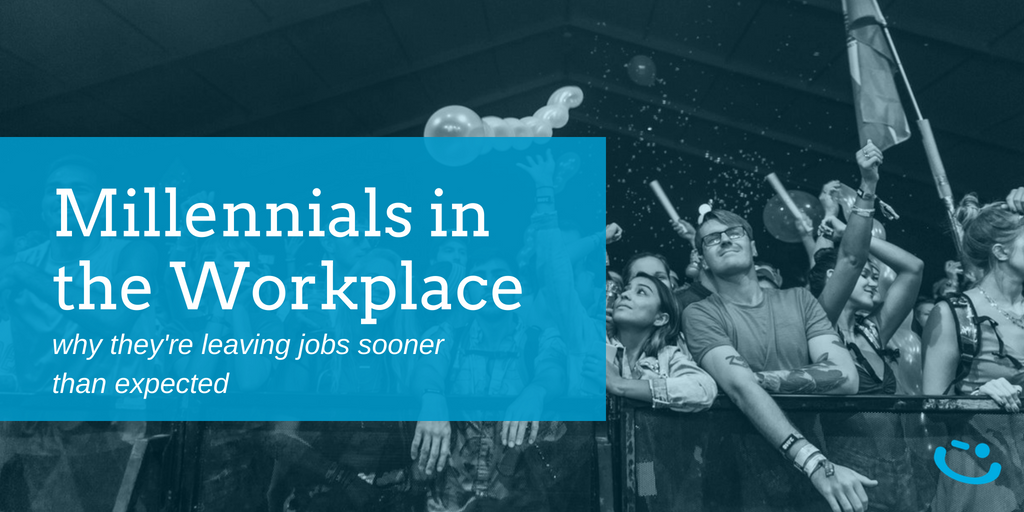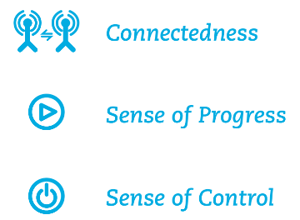
I was at a barbeque recently when a few people [higher-level management, in their 40s] were talking about Millennials in the workplace [cue the sighs and groans]. They expressed how they didn’t understand why their newly hired twenty-somethings were leaving their jobs so soon. These new hires were top of their class, had great internship experiences, and had lots of potential to become future leaders.
But to me, it seemed a bit obvious why they left.
I asked Jennifer Mansel, Client Cultivator at Delivering Happiness, to name a common concern people had about their company culture [or pain points discovered after they took our culture pulse survey]. She told me, “folks are being challenged to attract top talent. Millennials, though, are going to make up the biggest percentage of the workplace, and companies are having a harder time attracting them and making them want to stick around.”
In fact, a 2016 Gallup report revealed that 21 percent of Millennials say they've changed jobs within the past year [more than three times the number of non-Millennials].
Through some self-reflection and research on Millennials in organizational culture, I think I’ve figured out some reasons why we [yes, including myself] create challenges for employee retention:
Nowadays, purpose-driven companies are standing at the top of the job market because of how integrated their purpose is in the roles of their employees. As we know at DH, having a higher purpose motivates people intrinsically for the long run and extends farther than monetary incentives. By defining a higher purpose, a company can see how they make an impact in their community [and the world].
But why do Millennials want to prioritize impact in their job search?
.png?width=247&name=Purpose%20Quote%20-Jenn%20Version%20(1).png)
Simon Sinek gives some great insight on this – through social media and pressures from their parents, Millennials have lower self-esteem than other generations because of how frequently they compare themselves to others [we can write a whole article about this too].
To validate one’s self in the community, contributing and giving back is a way to solidify your place.
It’s no wonder that when a top student gets her first job and isn’t able to validate her potential to make an impact, she’s probably going to look for another company that is more purpose-driven.
We live in a world where we can get many goods and services faster than ever before. We can expect things shipped to us in two days or less and cue whatever we want to watch within seconds. As a generation that normalized these behaviors of instant gratification, it's no wonder that they want their successes to come at a comparable speed.

Through our happiness framework, DH describes progress as a lever used to create happiness in the workplace. People are happier in their jobs when they can experience a strong sense of growth in the work they are doing [no one likes to feel stagnant].
Millennials heavily demand a sense of progress from their employers to feel engaged in their work, whether it is through promotions, pay raises, more responsibilities, or recognition.
About 59% of Millennials say the “opportunity to learn and grow” is a deciding factor in job selection. It’s great that so many want to accelerate their careers, yet many companies are unable to keep up with the demands [and so they leave]!
Millennials are adept at learning for advancement. They eat up career development opportunities, online course websites [Coursera, Lynda, etc.], and consume a lot of business books [like Delivering Happiness]. They get to learn the gist of what they need to know about business and life from generations before them – all without needing to experience grit and the slowness of time.
How good of a deal is that?
Most of the things that took other generations a long time to master and learn can be found on YouTube [like cooking a perfect steak] or through a quick search on Google [how to build a computer]. With little mistakes made to perfect these skills, Millennials are learning to value the end over the means. This may translate to slightly less regard for employees that have tenure but fewer skill sets, less commitment to staying with an organization, and a more favorable view of companies that allow for skill development.
Evolving Challenges from Previous Generations
Like earlier generations, Millennials are trying to adapt to the challenges ahead and in the workplace because their view of the future is fairly pessimistic [hear me out]:
Factors like the desire for a work-life balance, health and wellness, and focus on equality are also key areas that have strong resonance with Millennial employees. And soon, they will make up the largest percentage of our workforce.
